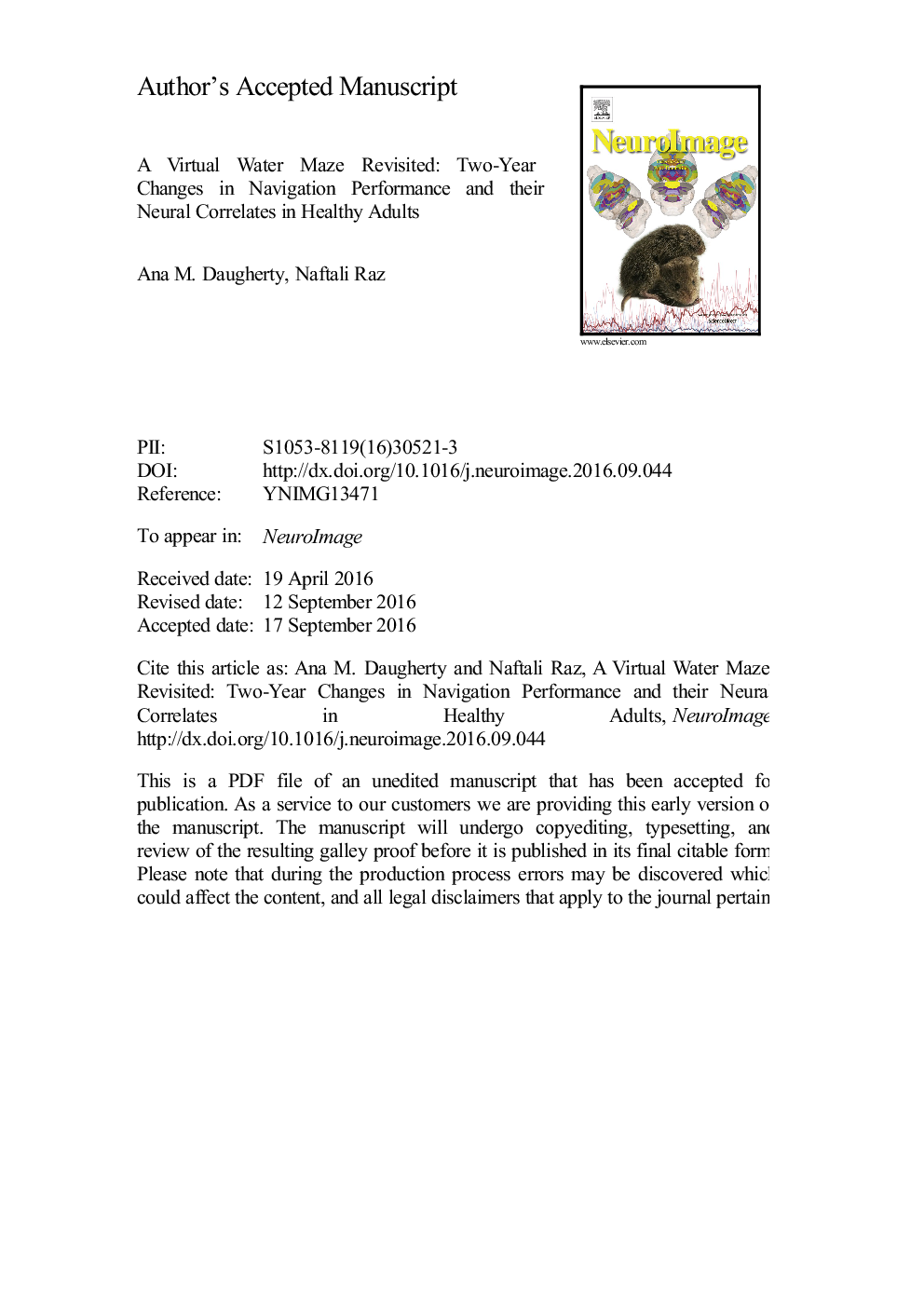ترجمه فارسی عنوان مقاله
مجذوب آب مجازی: تغییر دو ساله در عملکرد ناوبری و همبستگی عصبی آنها در بزرگسالان سالم
عنوان انگلیسی
A virtual water maze revisited: Two-year changes in navigation performance and their neural correlates in healthy adults
| کد مقاله | سال انتشار | تعداد صفحات مقاله انگلیسی |
|---|---|---|
| 123467 | 2017 | 65 صفحه PDF |
منبع

Publisher : Elsevier - Science Direct (الزویر - ساینس دایرکت)
Journal : NeuroImage, Volume 146, 1 February 2017, Pages 492-506

